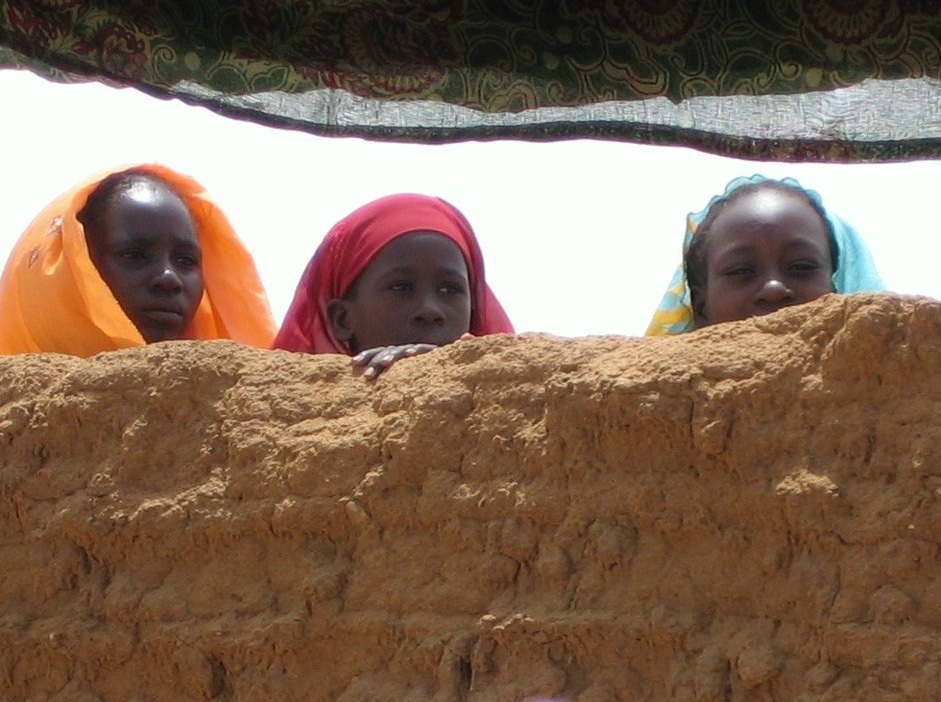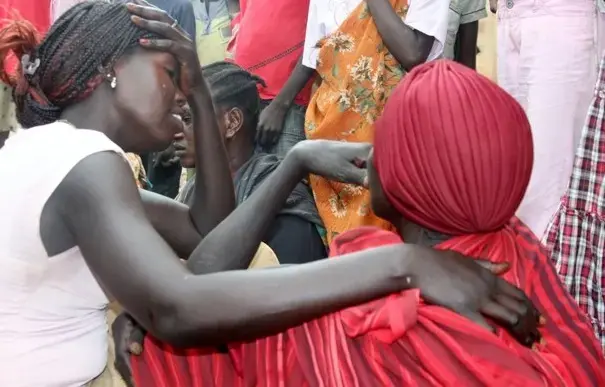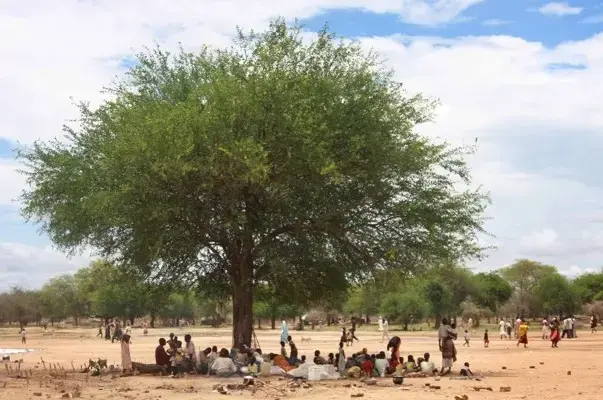TURALEI, Sudan — As the rainy season begins in this tiny rural village in southern Sudan, thousands of frightened women and children are seeking cover under makeshift shelters of bedsheets and rugs, strung up between tree branches lodged in the mud.
They fled their homes in the contested north-south border region of Abyei a little more than a week ago, as the Sudanese government began bombing the area, and most are dehydrated and hungry after days in the bush. Despite an enormous U.N. humanitarian presence in southern Sudan, basic necessities such as food and shelter are not yet reaching most of the displaced.
The humanitarian crisis comes just weeks before southern Sudan formally breaks from the north. Some analysts say the invasion of the region and the seizure of the largest town in the area, also called Abyei, mark an effort by the Sudanese government to strengthen its hand in talks over how to share oil revenue and divide debt once Sudan splits July 9. Others say it is the act of a regime struggling to maintain its domestic support and seeking to unify its opponents through the call to war.
Here in Turalei, Aker Chol Deng, 20, sat under a tree, holding her leg in pain. She had fallen while running to escape the assault on Abyei, and, like many in this camp, still nurses the injury she suffered along the way.
"I was preparing food," she recalled. "I heard gunshots, so I grabbed my children. From planes they were shooting at us." Deng said it took her and her two children three days to reach Turalei, 70 miles from Abyei. Like many families that fled in panic, she became separated from her mother and younger sister during the journey.
Turalei is one of five towns across the northwestern states of south Sudan that have become hubs for those displaced from Abyei over the past week. The United Nations estimates that 40,000 people fled the town of Abyei, and south Sudanese officials put the total population displaced from the town and surrounding areas at more than 80,000.
A near-total cessation in the flow of goods from the north to the south is hampering the effort to get relief to them.
Southern Sudan officials say Khartoum imposed an embargo on goods entering the south a month ago. The Sudanese government denies there is any formal ban on cross-border trade. But severe fuel and food shortages are apparent in the areas south of Abyei.
Cut off from aid
The south holds more than 80 percent of Sudan's oil. But once the oil is drilled, it is sent to refineries in the north before being transported back to the south for use. The trade blockage has left oil-rich southern Sudan with almost no fuel supply.
That lack of fuel is limiting the United Nations' ability to transport vital goods and services.
"If we don't have fuel, it is almost impossible to conduct operations on the scale we need," said Lise Grande, U.N. coordinator for humanitarian affairs in southern Sudan.
In the days since the Sudanese government seized Abyei, pro-northern militias ransacked stockpiles of food at a World Food Program warehouse, which the United Nations says could have fed 50,000 people for three months. Witnesses say the rampage appears to have had the support of the Sudanese government, with trucks of Sudanese armed forces waiting to collect the stolen goods.
The communities that have become temporary homes for the displaced are also struggling to provide assistance. They were already accommodating an influx of southerners who returned from the north in advance of the formal independence of the south in July after an overwhelming vote for secession in a January referendum.
Warrap state, where Turalei is located, has received more than 30,000 returnees from northern Sudan since late last year, according to the United Nations. "Even before the crisis in Abyei, our resources were stretched beyond capacity," said the governor of Warrap state, Nyandeng Malek.
The trade blockage has worsened the food shortage in these communities.
"Ninety-nine percent of the goods in our markets come from the north, so now we have nothing left in terms of food. How can you host when you yourself have nothing?" Malek asked.
Seasonal challenge
As the rainy season begins, the health of the displaced, particularly the children, is a growing concern for aid workers.
"We are very worried about respiratory infections and watery diarrhea," said Raphael Gorgeu, the head of Doctors Without Borders in Abyei, who is treating the displaced in the neighboring town of Agok. Like all the other aid organizations in the region, Doctors Without Borders had to relocate because of the fighting.
The hunger gap at this time of year is a concern, Gorgeu said, referring to the period between the depletion of the previous season's food supply and the coming harvest. "Even before the displacement, our hospital in Abyei was full of malnutrition cases."
The rainy season also creates a transportation challenge because of the poor condition of the area's limited road network. "Getting supplies in by road is going to be almost impossible soon because of the rains," said Deng Arop, the chief southern official for the Abyei area.
Arop fears that unless the fuel crisis is resolved quickly, the rains will turn the roads to mud, and it will be impossible to deliver relief supplies. "In a worst-case scenario, the bulk of the displaced will be cut off," he said. "At that point, it will be very difficult to get them humanitarian assistance."










